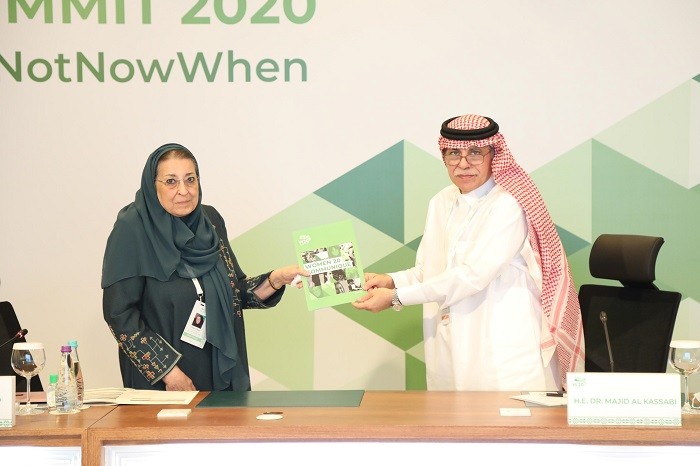Women 20 (W20), the women’s engagement group to the G20, urged G20 leaders to live up to their previous promises and close the gap between imagination and reality to make women’s economic equality a reality.
Laying out a set of key measures required to expedite the economic recovery from the COVID-19 pandemic, the W20 presented its Communiqué last week to Saudi Arabian Minister of Commerce and Chair of G20 Trade and Investment, and representing the Presidency of G20, Dr. Majid bin Abdullah Al-Qassabi.
With COVID-19 causing mounting problems around the world, and having a disproportionately negative impact on women, it is imperative to address the gendered impacts of the pandemic and ensure an inclusive recovery.
“Unless urgent action is taken, the pandemic will continue to exacerbate gender inequalities, expose deep-seated vulnerabilities in social, political and economic systems, and roll back any gains made on women’s equality over recent decades. Once again, women will be disproportionately negatively impacted and left to bear the brunt of a multidimensional crisis,” said Dr. Thoraya Obaid, W20 Chair.
The COVID-19 pandemic provides an opportunity for G20 leaders to reset G20 economies by planning a recovery based on a principle of inclusiveness and an acknowledgment that the full and equitable participation of women in economic activity is critical to a faster socio-economic recovery.
The W20 also presented recommendations to ensure the G20 achieve the UN Sustainable Development Agenda and the collective objective of a strong, sustainable, and balanced growth by supporting women’s social and economic empowerment.
Once adopted and implemented by G20 countries, the W20’s policy recommendations would act as enabling tools that would lead to a more gender equitable world.
Among the recommendations made by W20 to expedite economic recovery in the wake of COVID-19 pandemic, and ensure inclusive economies going forward are:
Ensure equal representation of women at all levels of decision-making in both private and public sectors. Adopt gender-responsive fiscal planning informed by impact assessments, so pandemic recovery fosters an inclusive workforce. Provide affordable and quality care for children, dependents, and elders. Increase availability of and access to high-quality healthcare. Ensure access to and participation of women and girls in education and training, including online and to digital technologies, especially those that increase women’s access to financial services.
The W20 is concerned about the lack of direct recognition so far by G20 Leaders of the impact the pandemic and national responses are having on women, and failing to take into account the specific financial and institutional needs of women. The delivered Communiqué is geared towards addressing these shortfalls and achieving sustainable and lasting change for women globally.

